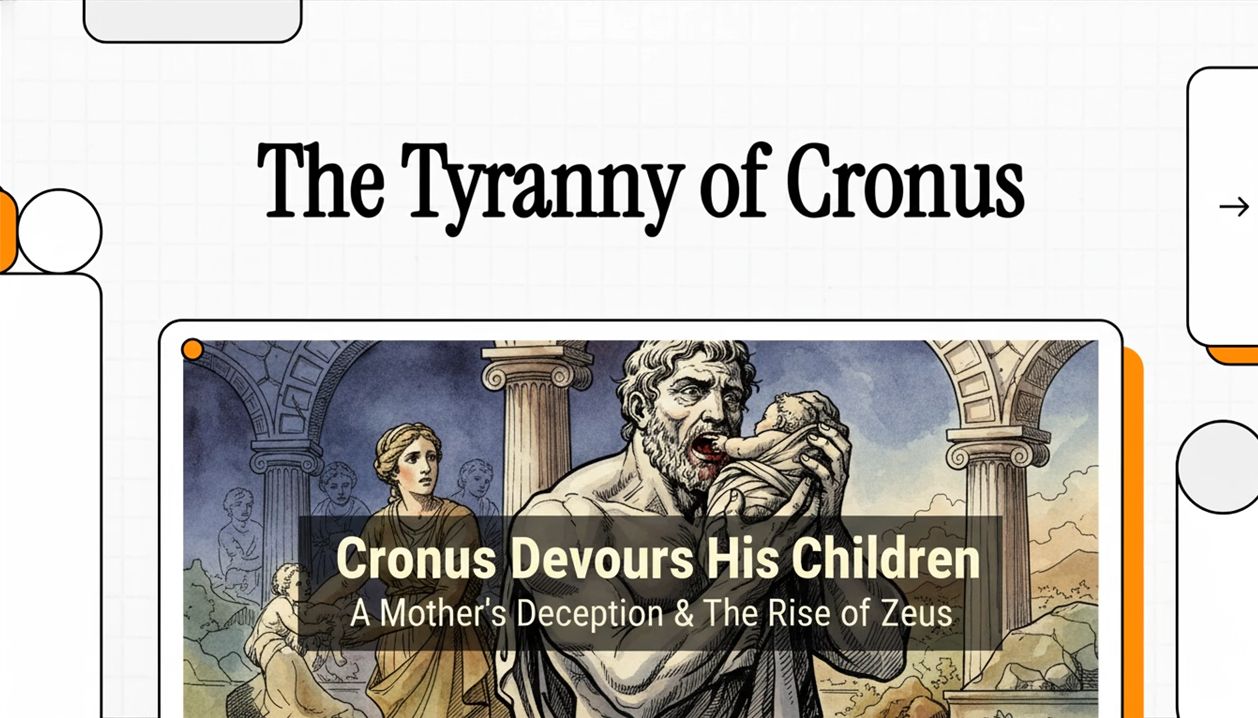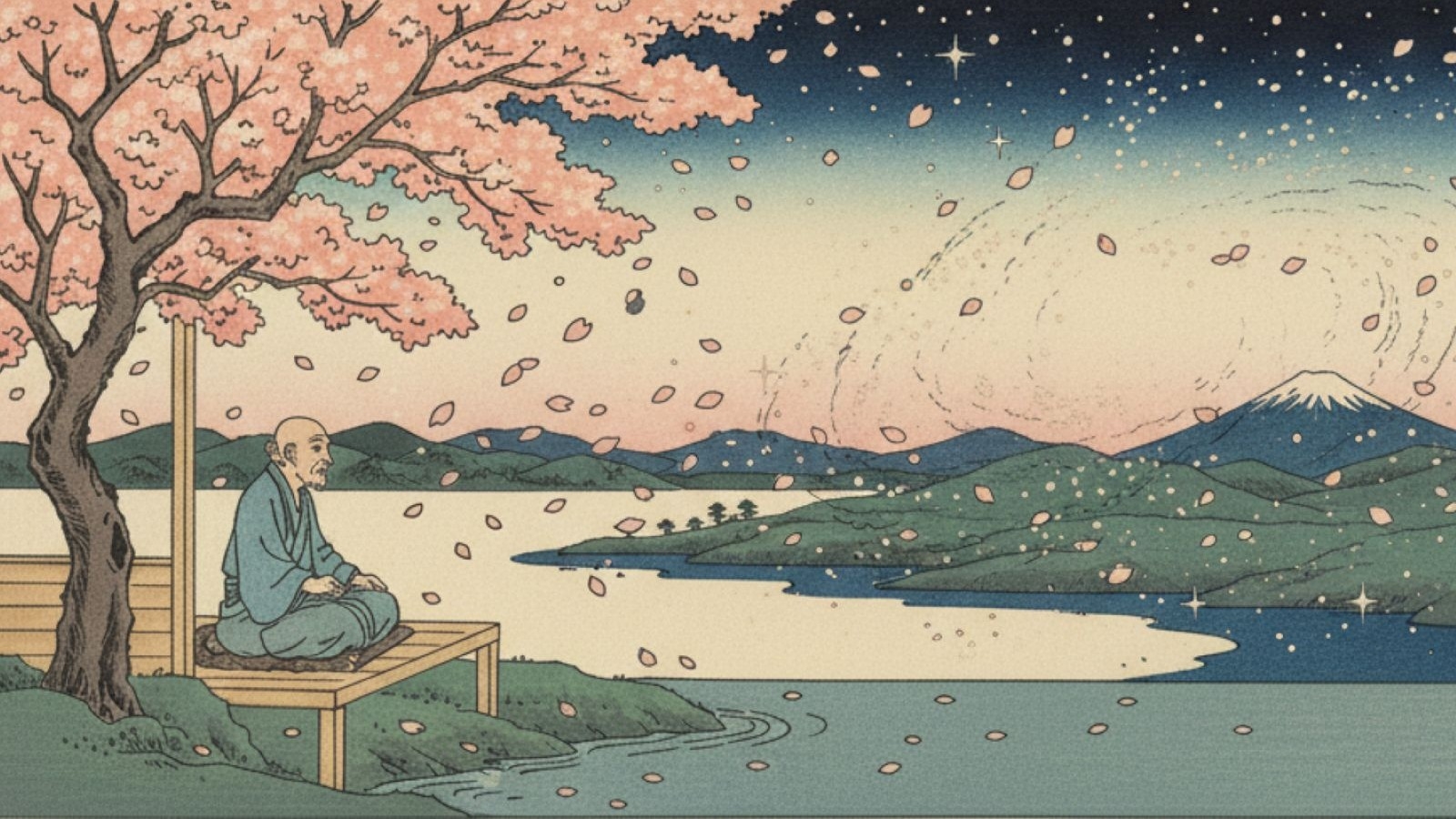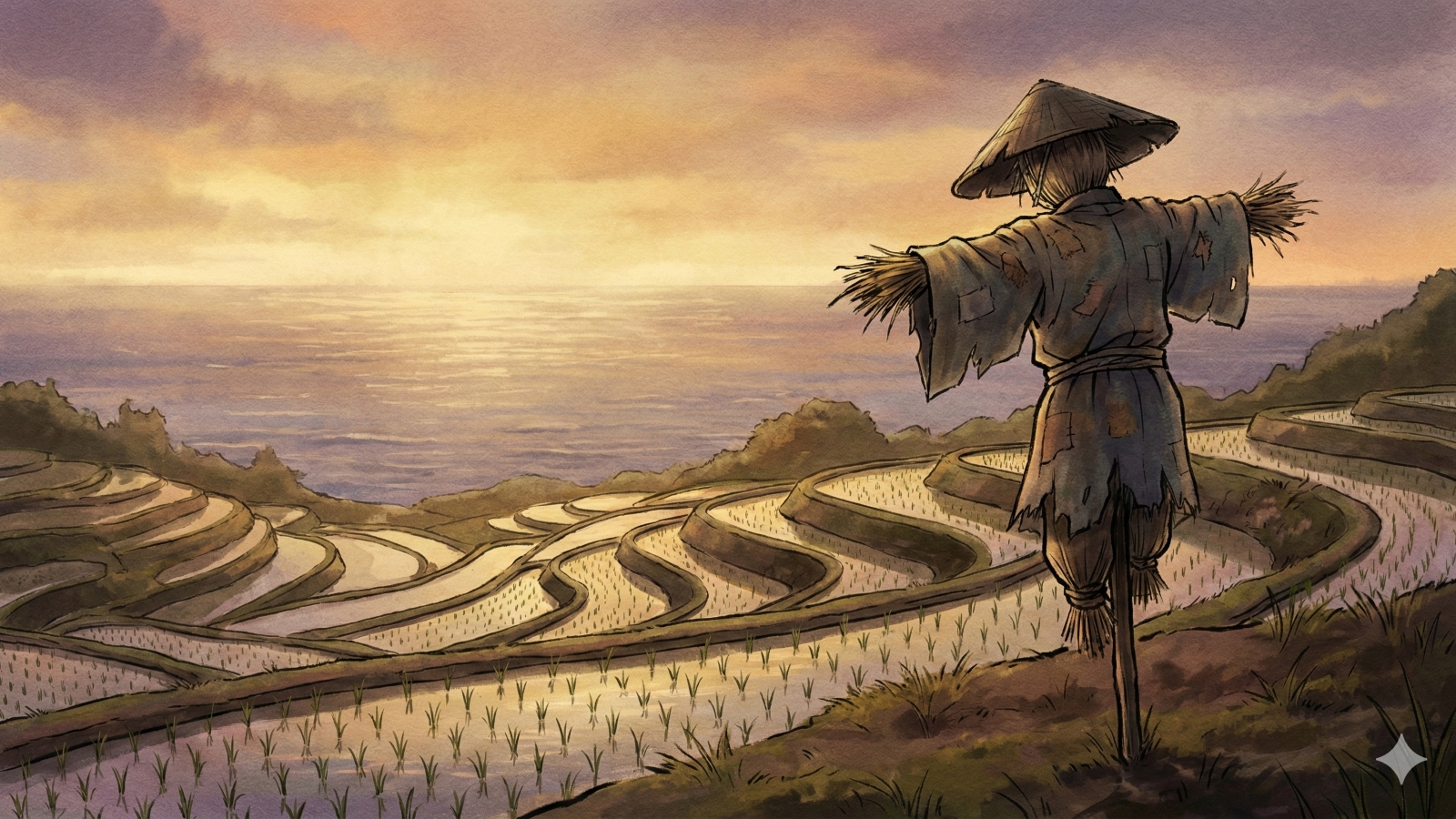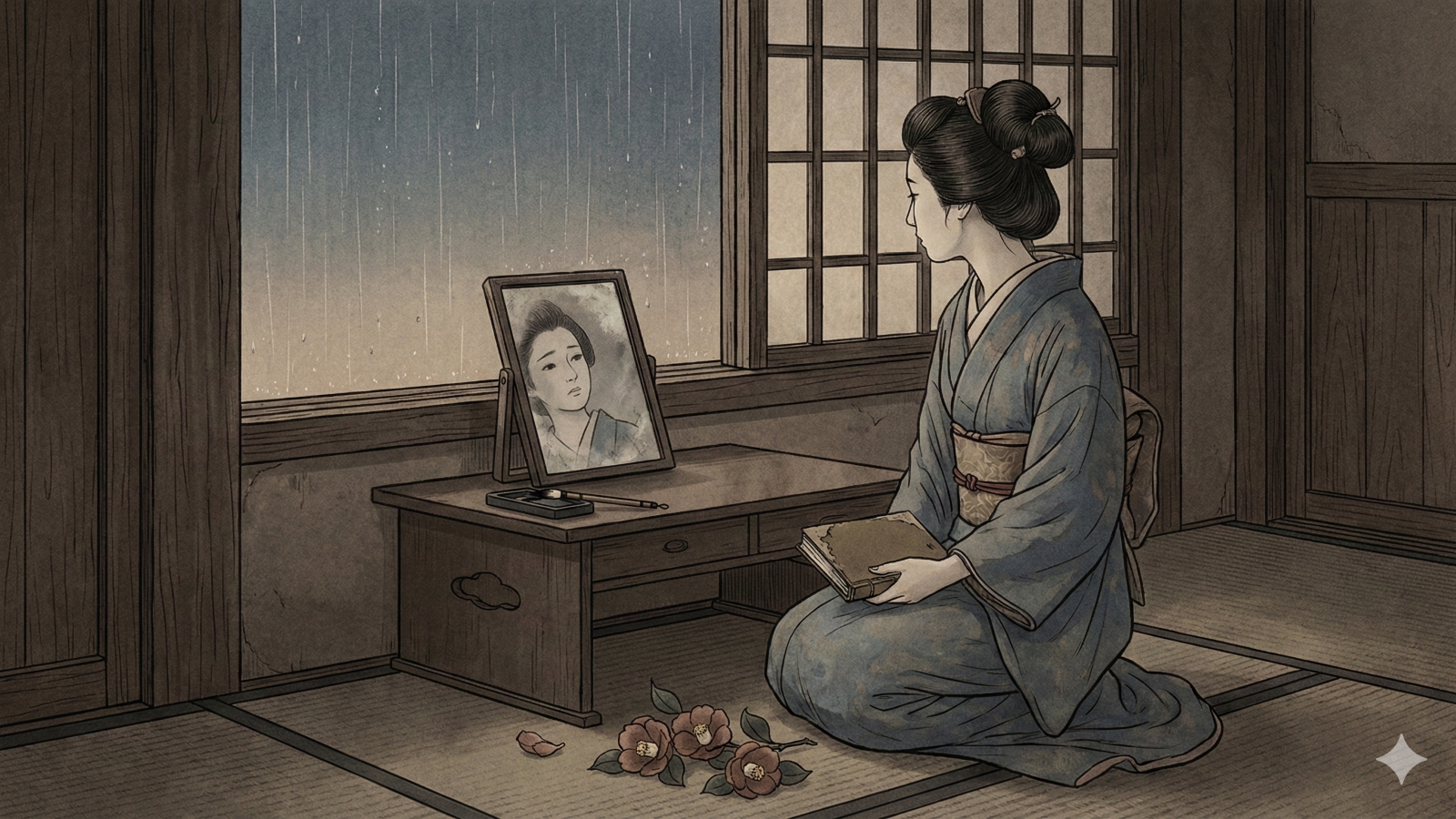The Tyranny of Cronus - Fear of Prophecy and a Mother's Deception
Fearing a prophecy that he would be overthrown by his own child, the titan king Cronus devoured his children one by one. This is the story of the desperate and clever ruse his wife Rhea devised to save their youngest son, Zeus.

The Tyranny of Cronus - Fear of Prophecy and a Mother’s Deception
A father who devoured his newborn children to protect his throne. The cruel reign of Cronus, king of the Titans, was destined for a dramatic turn by the desperate decision of his wife, Rhea. How did a mother’s love and ingenuity, embodied in a single stone, save the future king of the gods, Zeus?
The Shadow of Prophecy - Cronus’s Rise and Terror
In the dawn of myth, the ruler of the cosmos was the sky god Uranus (Apollodorus Library 1.1). With his wife, the earth goddess Gaia, he fathered monstrous children, including the hundred-handed Hecatoncheires and the one-eyed Cyclopes. Disgusted by their appearance, he cast them into the deep abyss of Tartarus (Apollodorus Library 1.2; Hesiod Theogony 154–158). Gaia’s rage at the imprisonment of her children reached its peak, and she incited her later sons, the Titans, to rebel against their father (Apollodorus Library 1.4).
While his brothers remained silent in fear, only the youngest, “cunning” Cronus, answered his mother’s call (Hesiod Theogony 167–172). Armed with a great sickle of adamant (steel) from Gaia, Cronus ambushed his father, castrated him, and thus separated Heaven from Earth, establishing himself as the new ruler (Hesiod Theogony 176–181; Apollodorus Library 1.4). Yet, upon seizing power, Cronus repeated his father’s mistake. He broke his promise to free his brothers and imprisoned them once again in Tartarus (Apollodorus Library 1.5).
The throne brought Cronus not peace, but perpetual terror. An ominous prophecy from his parents, Uranus and Gaia, gnawed at his mind: “You, too, are fated to be overthrown by your own child” (Hesiod Theogony 463–465; Apollodorus Library 1.5). This oracle drove Cronus to madness.
καὶ τοὺς μὲν κατέπινε μέγας Κρόνος, ὥς τις ἕκαστος νηδύος ἐξ ἱερῆς μητρὸς πρὸς γούναθʼ ἵκοιτο, τὰ φρονέων, ἵνα μή τις ἀγαυῶν Οὐρανιώνων ἄλλος ἐν ἀθανάτοισιν ἔχοι βασιληίδα τιμήν.
And them great Cronus swallowed down as each came forth from the womb to his mother’s knees with this intent, that no other of the proud sons of Heaven should hold the kingly office amongst the deathless gods.
(Hesiod Theogony 459–462)
Cronus took his sister Rhea as his wife, but in his fear of the prophecy, he devoured each of their children as they were born: Hestia, Demeter, Hera, Hades, and Poseidon. As she watched her children born only to vanish, Rhea was overcome with “unforgettable grief” (Hesiod Theogony 467; Apollodorus Library 1.5).
A Mother’s Gamble - Rhea’s Deception
Forced to bear children but never allowed to be a mother, Rhea’s sorrow eventually transformed into rage against her husband and a fierce determination to save her next child (Ovid Fasti 4.201–202). When she became pregnant with her sixth child, Zeus, she finally made her decision. Rhea sought help from her own parents, Gaia and Uranus, begging them to devise a plan so she could give birth and raise her child in secret (Hesiod Theogony 468–473).
Following her parents’ advice, Rhea traveled to the island of Crete. Some say she secretly gave birth to the future king of the gods in the land of Lyctus (Hesiod Theogony 477), while others claim it was in a cave on Mount Dicte (Apollodorus Library 1.6). Then, she put a bold plan into motion to deceive Cronus. Rhea found a stone about the size of an infant, wrapped it carefully in swaddling clothes, and presented it as if it were her newborn son (Hesiod Theogony 485).
An Arcadian tradition holds that this deception took place in a mountain cave and that when Poseidon was born, a foal was substituted for him instead (Pausanias Description of Greece 8.36.3; Pausanias Description of Greece 8.8.2). In any case, Cronus, his mind consumed by fear of the prophecy, failed to see through the ruse. He took the swaddled stone from Rhea without suspicion and swallowed it in one gulp (Hesiod Theogony 487–488; Apollodorus Library 1.7). The tyrant had no idea that a cold stone now lay in his belly in place of his son.
The Secret Upbringing of a King
Having deceived Cronus, the infant Zeus, born on Crete, was entrusted by his mother Rhea to a safe haven. A cave on Mount Dicte or Mount Ida became his sanctuary (Diodorus Siculus Historical Library 5.70.2). There, the nymphs Adrasteia and Ide, along with their attendants, the armed spirits known as the Curetes, were tasked with raising him (Apollodorus Library 1.6–7).
The nymphs nourished the young Zeus with a mixture of milk from the goat Amalthea and honey, raising him with great care (Apollodorus Library 1.7; Diodorus Siculus Historical Library 5.70.3). Meanwhile, the Curetes stood guard around the cave day and night, ensuring the infant’s cries would not reach Cronus in the heavens. By clashing their spears against their shields, they created a deafening noise that drowned out the sound of Zeus’s voice (Apollodorus Library 1.7; Ovid Fasti 4.207–210). Protected by this devoted guard, Zeus grew strong and healthy in secret.
As time passed, Zeus matured into a powerful young man. His strength and intelligence were destined to challenge his father Cronus, free his siblings, and fulfill the prophecy (Hesiod Theogony 492–493). The life saved by a mother’s love and the help of many allies was now poised to overturn the order of the divine world.
The Hour of Reckoning - The Tyrant’s Fall
Upon reaching adulthood, Zeus began his campaign of vengeance against his father. With the help of Metis, the goddess of wisdom, he obtained a potion to trick Cronus (Apollodorus Library 2.1). After drinking the potion prepared by Metis, Cronus was overcome by violent nausea and forced to regurgitate everything he had swallowed.
The first thing to emerge was the stone that had been substituted for Zeus. It was followed by Poseidon, Hades, Hera, Demeter, and Hestia, who were all freed, now fully grown (Hesiod Theogony 494–497; Apollodorus Library 2.1). This stone was later set up by Zeus at the sacred site of Delphi, in Pytho, where it was revered for generations as a “sign of wonder,” a monument to Cronus’s folly and Zeus’s victory (Hesiod Theogony 498–500).
Reunited with his brothers and sisters, Zeus led them in a war against their father and the Titans. This was the beginning of the Titanomachy, a cataclysmic ten-year war between the gods (Apollodorus Library 2.1; Hesiod Theogony 635–638). Ultimately, Zeus freed the Cyclopes from their imprisonment in Tartarus, and in return, they armed him with the ultimate weapon: the thunderbolt (Keraunos). With this power, he defeated the Titans and imprisoned them in the depths of Tartarus (Apollodorus Library 2.1; Hesiod Theogony 501–506).
The tyranny of Cronus had ended, and the cosmos welcomed a new ruler. The three brothers—Zeus, Poseidon, and Hades—drew lots to divide the world among themselves. Zeus became king of the heavens, Poseidon king of the seas, and Hades king of the underworld (Apollodorus Library 2.1). The story of Cronus, who resorted to the atrocity of devouring his children out of fear, offers a timeless, ironic lesson from myth: that the very attempt to escape one’s fate can be the means by which it is fulfilled.

Japanese Views on Seasons - The Gaze of Literary Figures
Japanese literary figures have deeply engaged with the shifting seasons and the workings of life through various forms of expression such as novels and essays. Their delicate sensibilities and keen powers of observation open the door to a dialogue with nature for us, teaching us the beauty and philosophy hidden within everyday landscapes.

Japan's Primal Landscapes - A Tale of Memories Told by the Land
Superimposing the deceased onto the buzzing of flies, seeing gods in one-legged scarecrows. For Japanese people, these mysterious stories were not fantasy, but "life" itself, right next door. Longing for lands beyond the sea, legends remaining in ancient mounds. Why not travel through the frightening yet gentle "primal landscapes of the heart" gathered by Kunio Yanagita, Lafcadio Hearn, and others?

To Wonders Beyond Logic - The Beautiful Abyss Peered into by Scientists
Science is not just cold calculations. It is awe for nature beyond human understanding and an endless quest for beauty. Seeing the universe in a snowflake, feeling the ferocity of life in roadside grass... These are the adventurers of knowledge who confronted the overwhelming "mysteries" that appear only at the end of logic. We touch upon the records of their quiet yet passionate souls.

The Soul Screaming "I" - Stories of Fate and Pride by Modern Women
Should women's lives be plastered over with resignation to fate? Or is it a battle to break through social barriers and win one's own "life"? The dry self-mockery spat out by Ichiyō, the poignant scream released by Akiko for her beloved. We listen to the cries of their souls as they resisted the chains of their era, struggling through the mud to establish the "self."